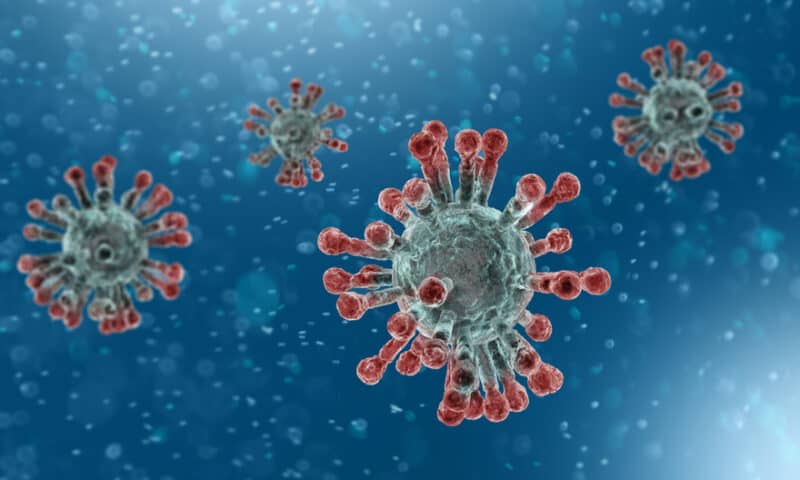AstraZeneca has put clinical development of its COVID-19 vaccine on hold in response to an adverse event, sparking a reassessment of the race to bring a coronavirus prophylactic to market.
The voluntary hold, details of which were first reported by Stat, follows a suspected adverse event in a U.K. participant in one of AstraZeneca’s clinical trials of COVID-19 vaccine AZD1222. According to a New York Times source, the participant suffered from transverse myelitis, inflammation of the spinal cord that can be triggered by infections.
It is unclear how long it will take to complete the investigation and resume dosing of participants in the clutch of late-phase AZD1222 trials AstraZeneca is running. AstraZeneca said it is working to “expedite the review of the single event to minimize any potential impact on the trial timeline” in an emailed statement. In the absence of firm details, analysts are speculating about the impact of the voluntary pause in dosing.
“Clinical holds are not necessarily unique and this is a large trial but given the importance of getting a vaccine to market and (i) perceived safety questions around expeditious pathway and (ii) AZN timing which we have pegged as not far behind PFE and MRNA, there will be a lot of focus here,” analysts at RBC Capital Markets wrote in a note to investors.
The analysts are unsure what, if any, readthrough there is for Pfizer, Moderna and the broader COVID-19 vaccine field. A significant delay to AstraZeneca’s progress could enable other vaccine developers to claim a bigger piece of the market. Alternatively, the whole field may suffer if it is shown that AstraZeneca’s adverse event could affect other COVID-19 vaccines.
AstraZeneca, like CanSino Biologics and Johnson & Johnson, is working on a viral vector vaccine. Pfizer, through its partnership with BioNTech, and Moderna are developing mRNA vaccines, while other companies are working on adjuvanted protein and inactivated vaccine candidates. The breadth of platforms being applied to COVID-19 means a problem with one approach won’t necessarily stop a vaccine getting to market.
The viral vector and mRNA vaccines at the front of the COVID-19 race are based on technology that is yet to yield a FDA-approved prophylactic. However, based on their conversation with a U.S. vaccine expert in July, analysts at Jefferies see the long history of military use of adenovirus vaccines as a plus point for the likely safety profile of AZD1222.
“The expert noted that for adenovirus vaccines, there was a substantial and ‘enviable’ safety dataset amassed from immunizing US troops over the past 60 years. This, of course, does not mean new adverse events could not emerge with a novel vaccine, perhaps as an autoimmune response to the chimpanzee adenovirus vector used,” the Jefferies analysts wrote in a note to investors.
The scale of the COVID-19 vaccine trials underway at AstraZeneca and other companies means that hospitalizations and other suspected serious adverse events were always a distinct possibility. Yet, the intense scrutiny of the COVID-19 vaccine race and implications of even very rare adverse events for products that could be given to more than 1 billion people are dialing up the impact of the hold.
AstraZeneca’s stock fell 8% in the wake of the news. Shares in BioNTech and Moderna, biotechs with valuations closely tied to their COVID-19 vaccines, rose a few percentage points over the same time.

